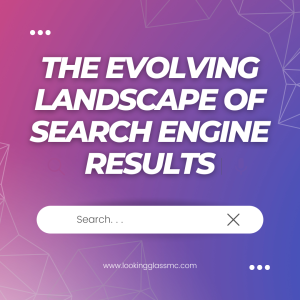
How Search Engines Are Changing
The digital landscape is ever-evolving, and search engines are at the forefront of this transformation. With advancements in artificial intelligence (AI), integration of social media content, and the rise of voice and visual search, the way we find information online is undergoing significant changes. Understanding these shifts is crucial for businesses aiming to maintain or improve their online visibility. This blog will explore the key ways search engines are changing and what these developments mean for your business.
AI-Based Search Results
How AI is Enhancing Search Accuracy
AI algorithms, such as Google’s RankBrain and BERT, are designed to understand the context and intent behind search queries. This results in more accurate and relevant search results, improving the user experience.
Examples of AI in Search Engines:
- RankBrain: Helps Google process search queries and sort through the vast number of pages to find the most relevant ones.
- BERT: Improves the understanding of natural language, enabling more precise answers to complex queries.
Benefits of AI in Search:
- Improved relevance of search results
- Enhanced user experience
- Greater ability to understand and process natural language
Social Media Post Incorporation
Impact of Social Media Posts on Search Results:
Search engines are increasingly considering social media content in their algorithms. This means that your social media presence can directly influence your search rankings.
Integration Examples:
- X: Google displays recent posts in search results, providing real-time content.
- Facebook: Organic search results will now display recent posts with relevant information, pulling from both content and locations.
Benefits of Social Media Integration:
- Increased visibility through diverse content
- Real-time updates influencing search rankings
- Enhanced brand presence across multiple platforms
Voice Search
Growing Trend of Voice-Activated Searches:
With the proliferation of smart speakers and virtual assistants like Alexa, Siri, and Google Assistant, voice search is becoming more prevalent. This shift requires businesses to optimize their content for voice queries.
Optimizing for Voice Search:
- Use natural language and conversational tone in your content.
- Focus on long-tail keywords and question-based queries.
- Ensure your website is mobile-friendly and loads quickly.
Benefits of Voice Search Optimization:
- Higher chances of appearing in voice search results
- Improved user experience
- Potentially increased traffic from voice searches
Visual Search
Use of Images in Search Queries:
Visual search allows users to search using images instead of text, leveraging technologies like Google Lens and Pinterest Lens. This method is particularly useful for ecommerce businesses.
Tools and Technologies Supporting Visual Search:
- Google Lens: Allows users to search for objects they capture with their smartphone camera.
- Pinterest Lens: Enables users to find products and ideas based on photos they take or upload.
Benefits of Visual Search:
- Enhanced user engagement
- New ways for users to discover products
- Increased conversion rates for ecommerce businesses
Conclusion
Search engines are continuously evolving, driven by advancements in AI, the integration of social media content, and the rise of voice and visual search. Staying updated with these changes and adapting your SEO strategy accordingly is crucial for maintaining and improving your online visibility. Embracing these new technologies can help you reach a broader audience and enhance user engagement.
Navigating the ever-changing landscape of search engines can be challenging. Contact Looking Glass Consulting and Digital Marketing for expert guidance on optimizing your business for the latest search trends. Our team is here to help you stay ahead of the curve and ensure your online presence thrives.
